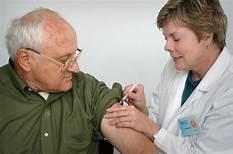
by in Health
You probably don’t remember having chickenpox as a child or getting a chickenpox vaccine. You probably haven’t given the illness a passing thought in decades. But you might want to think about it now. While chickenpox is usually an illness reserved for children, it can come roaring back in adulthood as shingles.
If you have had chickenpox, you are at risk of shingles, and you won’t soon forget the severe pain it can cause. There is no telling if and when shingles will strike, but luckily there are vaccines available to help prevent it. Here are a few things you should know about shingles.
Shingles is an illness that is related to chickenpox and caused by the same virus: the varicella-zoster virus. Before the chickenpox vaccine was developed, most children got chickenpox at some point. After you contract chickenpox, the virus remains in your body. Later in life, the virus can become active again and cause shingles.
Most children today receive a chickenpox vaccine. Like the natural virus that causes chickenpox, the vaccine virus can also become active later in life and cause shingles. However, people who had a chickenpox vaccine have a lower risk of getting shingles than people who had chickenpox.
The first sign of shingles is usually pain, which can be severe. After a few days, a person with shingles may develop a rash and fluid-filled blisters. Shingles can also cause burning, numbness, itching, and sensitivity to touch. It usually affects only one area of the body at a time, often appearing as a stripe of blisters on one side of the torso. People with shingles are contagious to those who have not had chickenpox or the chickenpox vaccine, but they are only contagious while they have open sores. If somebody catches the virus from a person with shingles, they will develop chickenpox, not shingles.
If you have had chickenpox, you can get shingles at some point during your lifetime. Almost one in three Americans will get shingles at least once, and the risk increases with age. Older adults and people with a weakened immune system have a higher likelihood of being hospitalized with complications. The most common complication of shingles is severe pain after the shingles rash has healed, and the risk for this complication also increases with age.
There are some medications available that can improve some of the shingles symptoms. These antiviral medicines do not cure shingles, but they can shorten the duration and lessen the severity of the illness. Contact your doctor when shingles symptoms appear and start treatment as soon as possible. Other treatments for shingles include pain management options like numbing cream and pain relievers.
A shingles vaccine can lower the risk of getting the illness. It is recommended for everyone over age 50, even if they have been vaccinated in the past or if they have had shingles.
“Although most people who get shingles only get it once, it is possible to get it multiple times,” says Skyler Peterson, executive director at Carrollton Health and Rehabilitation Center. “The risk of getting more than one bout of shingles is higher for elderly people and others with weakened immune systems. It is important to get the shingles vaccine, whether or not you have had the illness, to help prevent recurrences.”
If you think you may have shingles, visit your doctor as soon as possible to get treatment. If you haven’t had shingles, or even if you have, get a vaccine to give yourself the best protection from the illness.
